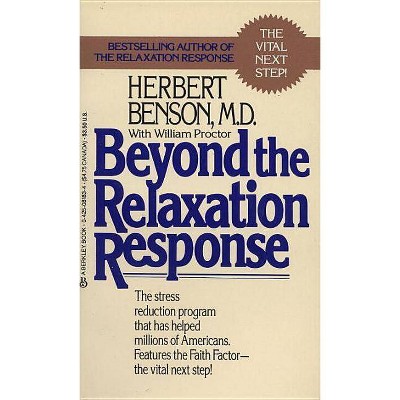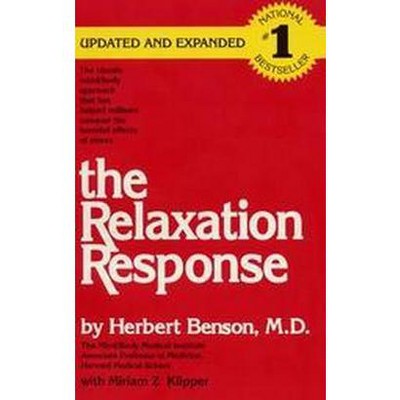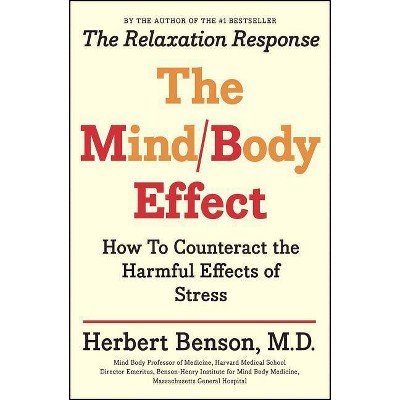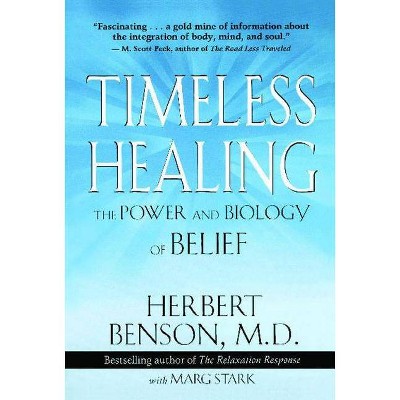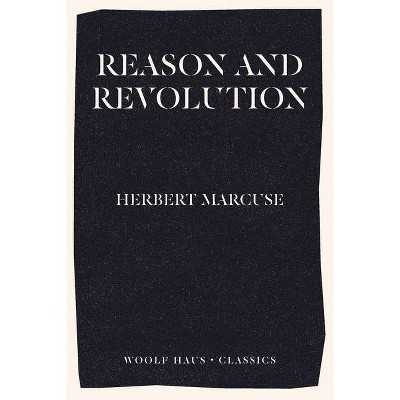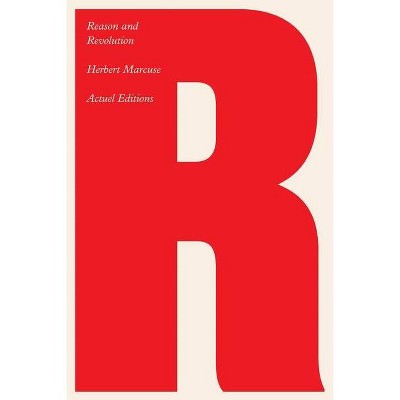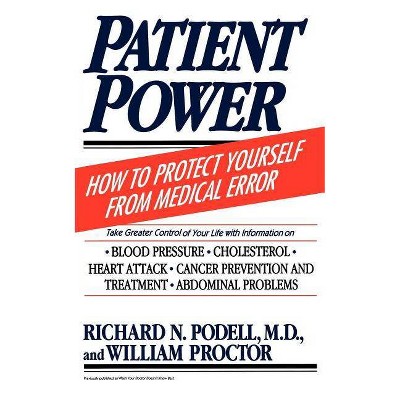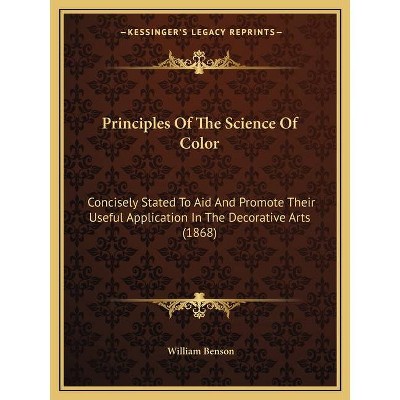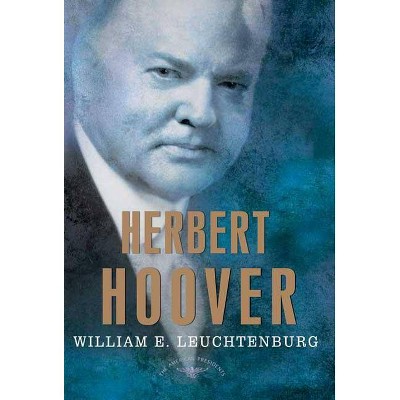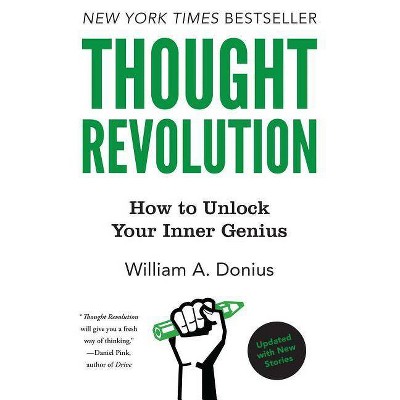Relaxation Revolution - by Herbert Benson & William Proctor (Paperback)
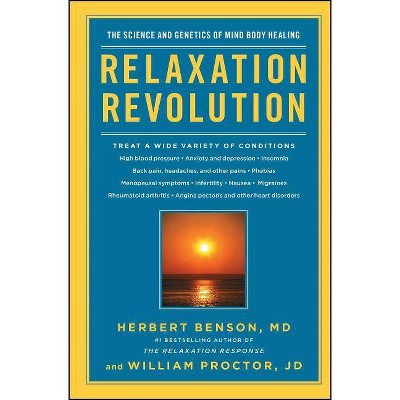
Similar Products
Products of same category from the store
AllProduct info
<p/><br></br><p><b> Book Synopsis </b></p></br></br><b>Recent scientific breakthroughs--demonstrating that mind body strategies can actually "switch off" or "switch on" gene activity associated with health and disease--have triggered a mind body revolution in the medical world.</b> <p/>In the 1970s, Dr. Herbert Benson of Harvard Medical School ushered in a new era of understanding in the field of mind body medicine. Coining the term "relaxation response," Dr. Benson identified the body's physiologic reaction that is the exact opposite of the stress (fight-or-flight) response. In the four decades since that initial discovery, Benson and his colleagues have established the first effective therapy to counteract the harmful effects of stress. They have explored how the relaxation response, the power of expectation and belief, and other mind body phenomena can produce healing in your own body. <p/>A new era has dawned. Genetic research now shows conclusively that the mind can influence the body <i>down to the genetic level</i>. Your mind has the ability to change the way your body and your genes function. <p/><b>We now have scientific proof that the mind can heal the body.</b> <p/>In <i>Relaxation Revolution, </i>Dr. Herbert Benson and William Proctor present the latest scientific endings, revealing that we have the ability to self-heal diseases, prevent life-threatening conditions, and supplement established drug and surgical procedures with mind body techniques. In a special "treatment" section, Benson and Proctor describe how these mind body techniques can be applied--and are being applied--to treat a wide variety of conditions, including: <p/>- High blood pressure <p/>- Anxiety and depression <p/>- Infertility <p/>- Insomnia <p/>- Menopausal hot flashes <p/>- Many pains, including backaches and headaches <p/>- Phobias <p/>- And much more <p/><i>Relaxation Revolution </i>details Dr. Benson's recent work with colleagues in the field of genetics, which links mind body treatments to the healing of a steadily expanding number of medical conditions. Mind and body have become part of a scientific and medical whole; together they represent a complete approach to healing and maximal well-being. In clear, straightforward language, Benson and Proctor cite the experiences of real people to show how mind body techniques have the potential not only to enhance healing but also to reduce health costs to individuals and to society as a whole. <i>Relaxation Revolution </i>shines a light on the future of medicine.<p/><br></br><p><b> Review Quotes </b></p></br></br><br>"Dr. Benson is truly one of the seminal thinkers bringing the integrated study of the mind and body to western medicine."<P><P>--Dr. Mani Bhaumik, University of California Los Angeles<br><br>"Herbert Benson, M.D. and William Proctor have been enlightening pioneers in their studies...their work can be shared by everyone, not just health-care practitioners."<P><P>--Reverend Theodore M. Hesburgh, C.S.C., President Emeritus, University of Notre Dame<br><br>"Herbert Benson, MD, is the father of modern mind body medicine. Dr. Benson's research has demonstrated that the relaxation response is the physiological counterpoint to the fight-or-flight response and serves as a natural antidote to stress."<P><P>--Daniel Redwood, "Health Insights Today"<br><br>"Nearly 35 years ago [Dr. Herbert Benson] became a kind of medical rock star with his bestselling book The Relaxation Response. It outlined a pioneering approach to relieving stress and a host of medical conditions related to it. Today...it is as relevant as ever."<P><P>--Linda Matchan, """Boston Globe"<P><P><br><br>"Peaceful thoughts really can influence our bodies, right down to the instructions we receive from our DNA."<P><P>"--ABC News"<br><br>“Dr. Benson is truly one of the seminal thinkers bringing the integrated study of the mind and body to western medicine.” <P>--Dr. Mani Bhaumik, University of California Los Angeles<br><br>“Herbert Benson, M.D. and William Proctor have been enlightening pioneers in their studies…their work can be shared by everyone, not just health-care practitioners.” <P>--Reverend Theodore M. Hesburgh, C.S.C., President Emeritus, University of Notre Dame<br><br>“Herbert Benson, MD, is the father of modern mind body medicine. Dr. Benson’s research has demonstrated that the relaxation response is the physiological counterpoint to the fight-or-flight response and serves as a natural antidote to stress.” <P>--Daniel Redwood, "Health Insights Today"<br><br>“Nearly 35 years ago [Dr. Herbert Benson] became a kind of medical rock star with his bestselling book The Relaxation Response. It outlined a pioneering approach to relieving stress and a host of medical conditions related to it. Today…it is as relevant as ever.” <P>--Linda Matchan, " ""Boston Globe" <P><br><br>“Peaceful thoughts really can influence our bodies, right down to the instructions we receive from our DNA.” <P>"--ABC News"<br><p/><br></br><p><b> About the Author </b></p></br></br><b>Herbert Benson, MD, </b> is the Mind Body Medical Institute Associate Professor of Medicine, Harvard Medical School. He is the author of the mega-bestselling book, <i>The Relaxation Response, </i> as well as ten other trade books. His groundbreaking work established the modern field of mind body medicine. Dr. Benson is the Director Emeritus of the Benson-Henry Institute for Mind Body Medicine at Massachusetts General Hospital. <p/><b>William Proctor, JD, </b> is a graduate of Harvard College and Harvard Law School and has written or co-written more than 80 books, including <i>Beyond the Relaxation Response</i> with Dr. Benson; <i>The Templeton Touch</i> with Sir John Templeton; and several international bestsellers with the "father of aerobics," Dr. Kenneth H. Cooper.
Price History
Price Archive shows prices from various stores, lets you see history and find the cheapest. There is no actual sale on the website. For all support, inquiry and suggestion messagescommunication@pricearchive.us
